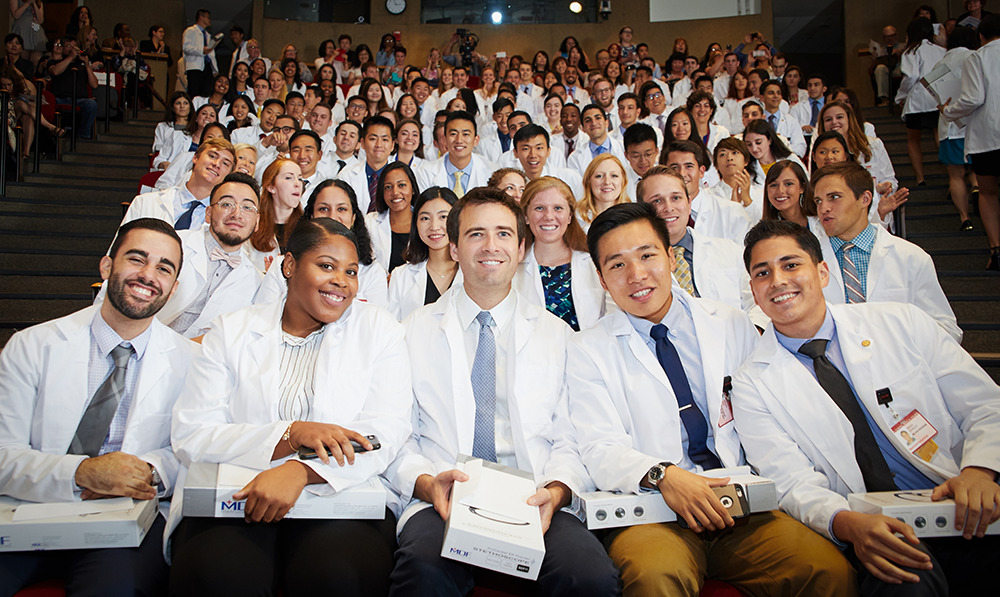Getting into medical school is a significant achievement. You’re on your way to a thriving career as long as you work hard in the succeeding years. However, your first hurdle as a medical student will be your first year of medical school. It’s a new environment with new people and many new things to learn.
You’re not alone, though. The Association of American Medical Colleges reports that US medical schools have had 22,981 matriculants from 2023 to 2024. Most of them likely had to go through some preparation too.
Read on as this guide provides practical advice for a first-year medical student like you to make the most out of your med school experience. Let’s begin!
Conquering the Curriculum
Your first two years of medical school are dedicated to building a solid foundation in biomedical sciences. So expect your initial curriculum to include clinical exposure and subjects like anatomy, physiology, and biochemistry. Remember, these will form the basis of your understanding of treatment and disease throughout your medical career, so refining your learning strategies goes a long way. Consider practical methods for studying effectively, such as:
Spaced Repetition
Review new information at increasingly spaced intervals. It’s like using flashcards, which is also a fantastic way to absorb new terms and concepts learned in your first year of med school. You start slow, then gradually increase the interval between reviews until the facts become stock knowledge to you.
Concept Mapping
This technique helps you visualize connections through a diagram. Concept mapping is ideal for connecting different ideas and concepts to see how they relate to each other. Anatomy is one subject in which this method can prove effective.
Group Study
Studying alongside your fellow first-year students can benefit you. Research shows that learning with a group can improve academic and socio-emotional outcomes. Your classmates enrich discussions, deepen understanding of complex concepts, and provide diverse perspectives. So, consider joining a study group of students who share the same work ethic for more effective study sessions.
Another tip: books will continue to be your learning partners in med school. So invest in high-yield textbooks recommended by your professors or upperclassmen. You can also turn to online educational tools designed for medical students to supplement your learning.
Mastering Time Management
Practicing effective time management can help reduce the stress often equated with med school. Here’s how you can create your own realistic schedule as a first-year medical student:
Block Out Study Time
Lessen your load by dedicating a specific block of time solely to studying a particular subject. Treat it as if it was a regular class session for those courses. Aim for at least 45–60 minutes of uninterrupted study time with short breaks in between so you can absorb the lessons well.
Integrate Breaks and Self-Care
If you have study time blocks one after the other, don’t power through them without ample rest. Give yourself a few minutes to let your mind relax. Studies indicate that the brain accounts for 20% of your body’s energy consumption. So ensure you get enough rest to recharge and prepare for another round of studying. Stand up, walk around, pick up a snack, and stay hydrated.
Do Important Tasks First
Prioritization helps lessen your workload. So, create a clear and realistic to-do list to outline what you should do for the day. The more important a task is, the higher it should be on the list. You can also use apps to help you focus on each task and long study sessions. For example, the Pomodoro technique—where you have focused 25-minute intervals and short in-between breaks—is a popular method you can use as a first-year medical student.
Most importantly, remember to get enough sleep, exercise, and a balanced diet. You need rest and nutrition for optimal cognitive function to get through your first year of medical school.
Building Your Support Network
Succeeding in med school is challenging if you ride it out alone. This is where collaborating with your classmates sometimes comes in. In a group, you can share solutions to complex problems and test each other’s knowledge, further enhancing your understanding of medical concepts.
You can also reach out to professors and upperclassmen for mentorship. Mentoring programs could boost your med school satisfaction and career development. Their experience is invaluable and may help you in navigating your first two years of medical school. So, don’t hesitate to seek help, visit your professors during office hours for clarification on lessons, and ask advice from upperclassmen on course selection, among others.
Lastly, maintain strong personal connections. Med school can be taxing, so you need to have a support network outside of an academic environment. Don’t neglect your family and friends. Schedule quality time with them whenever you can. Their presence may be something you need to survive stressful moments.
Final Thoughts
As you prepare for your first year of medical school, remember that challenges are opportunities for growth. Study hard and make time for yourself. And while navigating med school can be a challenging endeavor, know that you are not alone. There’s a network of support available, from your friends, family, classmates, and professors to advisors and medical school resources.
The life of a healthcare professional begins when you’re still a student. Take these tips with you as you start your journey and build your future career.




